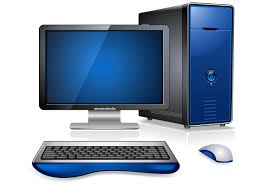英语词源
- computer (n.)
- 1640s, "one who calculates," agent noun from compute (v.). Meaning "calculating machine" (of any type) is from 1897; in modern use, "programmable digital electronic computer" (1945 under this name; theoretical from 1937, as Turing machine). ENIAC (1946) usually is considered the first. Computer literacy is recorded from 1970; an attempt to establish computerate (adjective, on model of literate) in this sense in the early 1980s didn't catch on. Computerese "the jargon of programmers" is from 1960, as are computerize and computerization.
WASHINGTON (AP) -- A New York Congressman says the use of computers to record personal data on individuals, such as their credit background, "is just frightening to me." [news article, March 17, 1968]
权威例句
- 1. He programmed his computer to compare all the possible combinations.
- 他给他的计算机编制了一套程序,以比较所有可能的组合。
- 2. Who wants to buy a computer from a failing company?
- 谁愿意从一家要倒闭的公司买计算机呢?
- 3. A toy store has marked down the Sonic Hedgehog computer game.
- 一家玩具店降低了电脑游戏《刺猬索尼克》的售价。
- 4. Finding a volunteer to write the computer program isn't a problem.
- 找个志愿者编这个计算机程序不成问题。
- 5. Thousands and thousands of start-up firms have poured into the computer market.
- 成千上万家新成立的公司已涌进了计算机市场。

